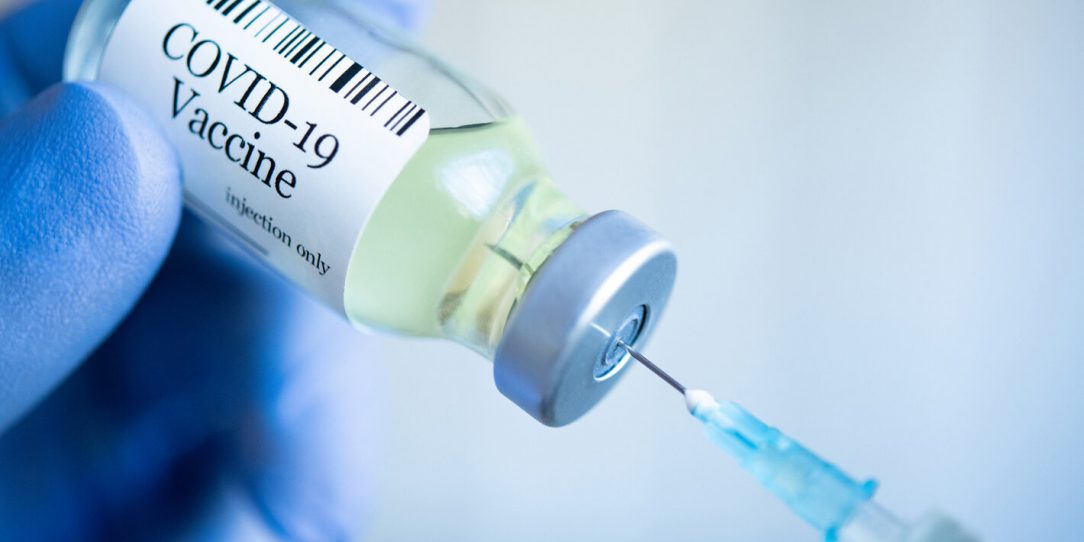The Utah Department of Health (UDOH) is today recommending vaccine providers temporarily pause administration of the Johnson & Johnson COVID-19 vaccine. The pause is to allow the U.S. Food and Drug Administration (FDA) time to investigate reports of a rare, treatable type of blood clots experienced by a small number of who received the vaccine.
More than 6.8 million doses of the Johnson & Johnson vaccine have been administered in the United States, and six people have reported experiencing blood clots. Nearly 77,000 Johnson & Johnson doses have been administered in Utah with no reports of blood clots among those patients.
“Even though these cases have occurred in just one out of every one-million people who have received the vaccine, and even though it will slow our efforts to vaccinate Utah residents against COVID-19, calling for this pause is the right thing to do,” said Rich Saunders, UDOH executive director. “It’s critical the public be confident in the COVID-19 vaccines, and in order to build and maintain that confidence reports like these must be taken seriously and fully investigated to determine what role, if any, the vaccine played.”
The UDOH will coordinate closely with the FDA and Centers for Disease Control and Prevention in the coming days and will determine how to move forward based on those agency’s review of the situation.
The two other COVID-19 vaccines, manufactured by Pfizer and Moderna, represent the significant majority of doses administered in Utah and are unaffected by this announcement. More than 1.8 million doses of those vaccines have been administered in Utah.
If you are currently scheduled to recieve a Johnson & Johnson vaccine, your health provider should be contacting you with more information. To find a vaccine provider, please visit our Vaccine Distribution page.
What to watch for if you got the Johnson & Johnson vaccine
If you received the Johnson & Johnson vaccine more than a month ago, your risk for severe reactions is very low.
It’s common to have mild or moderate side effects after you get a vaccination. This means your body has started to create an immune response and is learning to fight the virus. Side effects like a sore arm or fever are normal after you get a vaccine. These reactions usually happen within the first 24-48 hours after you get a vaccine and last for a few days. These side effects can affect your daily activities but go away after a couple of days.
The side effects we are concerned about with the Johnson & Johnson vaccine are different and happened between 6 and 13 days after the person received the vaccine. If you have any of the symptoms below after you received the Johnson & Johnson vaccine, call a healthcare provider and seek medical care:
- Leg pain
- Severe abdominal pain
- Shortness of breath or chest pain
- Severe headache
Monitoring for vaccine safety
The vaccine is safe and effective at protecting you from COVID-19. The development process was transparent and rigorous, with continual oversight and expert approval. Every phase of every trial was carefully reviewed and approved by a safety board and the FDA. Even after trials are complete and vaccines are authorized, vaccines are still monitored for safety.
The CDC and FDA continue monitoring for side effects to pick up on adverse events that may not have been seen in clinical trials. If an unexpected adverse event is seen, experts quickly study it more to see whether it is a true safety concern. Experts then decide whether changes are needed in vaccine recommendations. This monitoring process is already in place, and is used for all vaccines, not just COVID-19. This is how we make sure the benefits of getting a vaccine continue to outweigh the risks.
Vaccine Adverse Event Reporting System (VAERS)
VAERS is the national system that collects reports of side effects that happen after vaccination. If reports are unexpected, appear to happen more often than expected, or have unusual patterns, experts quickly study it further to see whether it is a true safety concern.
VAERS serves an important purpose to help public health experts watch for unexpected side effects from vaccines. However, VAERS is often misused by people to spread misinformation. Common misuses are to take unverified reports from the VAERS database and represent them as facts, or to take them out of context. It’s important to remember that VAERS reports are unconfirmed. Anyone can submit a report to VAERS and all reports are immediately available to the public, before they have been researched or verified. Reports of concern are verified and undergo scientific study. For verified information about side effects from the COVID-19 vaccine, follow credible sources like CDC.
If you think you may have had an adverse side effect to a vaccine, you can report it to VAERS. You can also call the Utah Poison Control Center at 1-800-222-1222. Hotline operators can help you know if you should seek medical care or report the side effect to VAERS.

